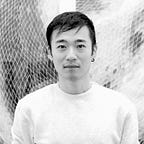Week 2: reflections
Evolution is an incredibly interesting and complex phenomenon — it is responsible for shaping the organismal diversity of everything that currently exists in the world, but often happens at a pace that is often oblivious within a human lifespan. Of course, there have been direct observation of evolution in action: scientists were able to directly observe the shift of the peppered moth from its usual white-and-black speckled appearance to those with mostly a black appearance. This evolutionary shift in fitness was a direct result of the pollution being released from the nearby industrial factories that covered the trees with soot, thereby shielding the moths with darker phenotypes from being eaten — this was a notable case of industrial melanism. Still, this observation happened over many years and was rapidly accelerated by the industrial revolution.
The evolution of complex traits, or even the emergence of a new species entirely, is a process that takes hundreds or even thousands of years — mutations that change the fitness of a subsection of a species must happen gradually and the resulting change should be significant enough to push evolution towards favoring it. Luckily, scientists now have the necessary technology to simulate evolutionary within a population, or even for just a specific gene, using advanced algorithms and programs — this is a field in evolution called evolutionary computation.
In the most simple scenario, scientists would be looking for the evolution or the fitness potential of a single trait, whose phenotypic expression is easily noticeable or measured. In this genetic algorithm, the computer would generate an initial population of individuals randomly — this population would be large for not only accuracy but to ensure that one single mutation or cataclysmic event would not shift the entire population rapidly towards one evolutionary path or another; rather, the large sample size would encourage organic and parsimonious shift in fitness. Depending on what trait the scientists are looking for, the algorithm would generate a list of the individuals in the population that are the fittest — meaning they possess the qualities that would allow them the greatest chances of surviving and reproducing. The definition of evolutionary fitness is specific to each trait being observed; for example, the ability to be amphibious and breathe atmospheric oxygen was a trait that allowed organisms who had this gene to survive on land, giving them access to more resources and opportunities to survive than those that did not; thus, they were more fit to survive and these genes were eventually passed on to their offsprings in future generations. The algorithm would then breed the fittest individuals with each other, taking into consideration random operations such as crossover breeding and the mutations that come with it, to generate offsprings for the next population. Depending on how the trait of interest is passed along to their offsprings, the individuals in the next generation would express this “fitness trait” in varying dominance. Assuming that this trait was necessary for survival, the individuals born without this trait would eventually die and the remaining individuals would be allowed to breed again and create a new population, thereby cementing the necessity of this trait of interest and pushing evolution to favor those that possess the genetic makeup of this trait. This process is continuous and cyclic.
Although this algorithm has been successful in generating ideas about how different species emerged or how different traits became dominant, there is a discourse happening within the scientific community that we have reached a period where humans can actively stop or alter the natural course of evolution; because medical advancements are constantly being made and humans are fixated on expending their lifespans, the idea of evolutionary fitness is changing. Individuals who would normally succumb to a life-threatening disease or genetic disorder are being given opportunities to live a long life and even have children — medical advancements are allowing them to thrive in spite of evolution working against them. This brings up a whole realm of ethics, and the idea of playing God with an organic process that has defined the natural order of the world.
